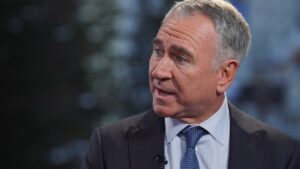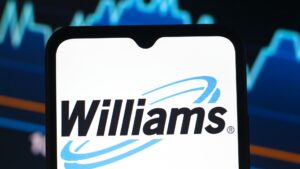A final verdict on Epic Games Inc.’s antitrust lawsuit against Apple Inc. could be as long as the 185-page decision issued by a federal judge last week. Try three to five years in a withering legal war of attrition that could wend its way to the U.S. Supreme Court, some experts say.
Apple Inc. was dealt a blow last Friday when a federal judge in the Epic Games Inc. case issued an injunction that said the company can no longer force developers to use its payment system, effectively bypassing commission fees of 15% to 30%. However, the iPhone maker was not ruled an antitrust monopolist.
The appeal process began in earnest Sunday, when Epic filed a motion in the Ninth Circuit Court of Appeals in San Francisco. Apple
AAPL,
which claimed a resounding victory, said it is considering all legal options and has until late January 2022 to appeal.
“Both sides have good issues for appeal. Epic challenging market definition and procompetitive justifications found by the Court, and Apple challenging the state law injunction and perhaps the market definition,” antitrust lawyer Paul Swanson told MarketWatch. He expects Epic’s appeal to “roll on at least another 18 months in the Ninth Circuit, and then we’ll see whether there’s a tight legal issue teed up for the Supreme Court,” he added.
Projected years of uncertainty could wreak havoc with the business plans of small- and mid-sized developers, who are tasked with complying with App Store rules, and legislators whose bills are impacted by future rulings in the Epic-Apple case.
“From a business planning perspective, it just adds more hoops to jump through,” Morgan Reed, president of The App Association, which represent 5,000 small and medium size app developers, told MarketWatch. He fears the closely-watched legal battle over the future of apps to drag on for months if not years.
At the same time, bills in the Senate and House that would rein in the powers of digital platforms like the App Store are wending their way through the legislative process. Co-sponsors cite the necessity of new antitrust laws to curb the expanding tentacles of Apple, Google, Facebook Inc.
FB,
and Amazon.com Inc.
AMZN,
and others.
Adam Kovacevich, CEO of the Chamber of Progress, a tech industry policy group, isn’t so sure those bills need to be modified since Judge Gonzalez Rogers addressed the issue of payment systems outside the App Store. “Her decision chips away at the 30% commission,” Kovacevich said.
If that doesn’t give developers, lawmakers and regulators pause, this might: Epic’s similar suit vs. Google parent Alphabet Inc.
GOOGL,
GOOG,
could begin in federal court in North Carolina in 2022, meaning Epic will be waging a two-pronged legal attack against two of tech’s biggest players. However, Epic is likely to drop its case against Google if it loses on appeal vs. Apple, according to Kovacevich.
A prolonged pitch between Apple and Epic is anticipated because deep-pocketed tech giants have the resources, patience, egos, and financial incentive to protect their digital turf. It’s the Silicon Valley way to argue in court until you ultimately win.
For Apple, extended battles in court are nothing new. In fact, it waged an eight-year battle with four consumers over some of the same principles as the Epic case, according to Valarie Williams, an antitrust expert in Silicon Valley.
The U.S. Supreme Court ruled 5-4 against Apple in May 2019 in a case where the plaintiffs argued Apple’s 30% commission inflated prices for iPhone software, constituting an unfair use of monopoly power. Although the procedural ruling was a loss for Apple, it will take years before the case is finally resolved.
Apple maintains consumers can’t sue because Apple was merely providing a marketplace for the apps, and only app developers have standing to sue for antitrust — something Epic did unsuccessfully, according to Gonzalez Rogers’ ruling.
Another long-term tussle found — you guessed it — Apple ultimately on the winning end of a patent-infringement dispute with smartphone rival Samsung Electronics Co. Ltd. KR:005930 that also reached the Supreme Court.
In spring 2011, Apple sued Samsung for alleged violation of design patents, setting in motion a series of skirmishes that culminated in an 8-0 decision by the Supreme Court in late 2016 to return the case to Federal Circuit court to define the appropriate legal standard “article of manufacture.” As of mid-2018, trials over the patent dispute had been resolved, with Apple awarded $539 million.
History is rich in such marathon clashes. The granddaddy of litigation was Oracle Corp.’s
ORCL,
decade-long copyright clash with Google that was decided by the Supreme Court in April 2021.
The court voted 6-2 in favor of Google in an $8 billion dispute over the internet company’s creation of the Android operating system used on most smartphones worldwide. Google wrote millions of lines of new computer code to create Android, released in 2007, but it also used 11,330 lines of code that’s part of Oracle’s Java platform — an action Oracle claimed was “egregious act of plagiarism.”
This post was originally published on Market Watch







